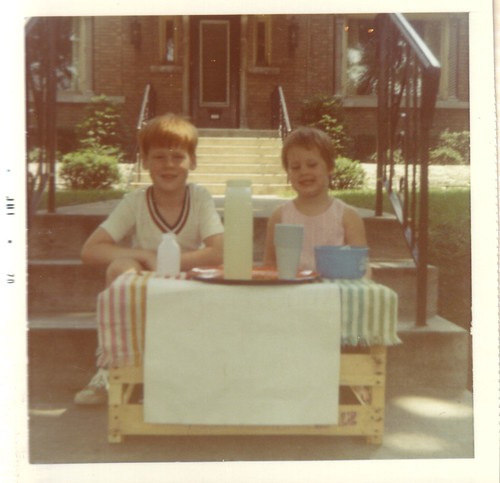Logan, a 13 year-old boy in Nevada, gave this TedX talk on hacking his own education. At such an early age, he's already sick of the question: "what do you want to be when you grow up."
Grown-ups want to hear kids say "neurosurgeon" or "rocket scientist," but in reality, they want to be pro skaters or video game makers. They want to do things that make them happy.
Adults give them a recipe for happiness: "go to school, go to college, get a job, get married. then, boom, you'll be happy."
But, Logan doesn't believe it. Therefore, he's hacked his homeschool education around 8 pillar of happiness:
- Exercise
- Diet & nutrition
- Time in nature
- Contribution & service
- Relationships
- Recreation
- Relaxation & stress management
- Religious & spiritual
His formula seems more likely to induce happiness than the adult formula.
Then, why do we still teach children that money leads to happiness?
Check out the popular children's games below with their Amazon descriptions. Take a close look at the symbols and wording.
Success is money
Success is a flashy car
Success is a big house
Success is accumulating property
Success is following the "right" path
While I agree these are legit status symbols, I'm not sure if it's a good use of children's time to play out these adult scenarios. They are incredibly impressionable and moldable.
Shouldn't we encourage them to strive for bigger and better things?
No wonder 35M Americans are depressed when society sets them up with these expectations of happiness...

"Practice makes perfect in the game of Life. Try marriage, kids, and more. Will you go to college and take out student loans? Or join the working force and collect on payday? Will you go bankrupt, or earn millions in stock and real estate? Anything's possible with a spin of the Life wheel! A classic family game that can be a reality check--or just a fun time."
Margaret Quinn, Game of Life
"In 1934, in the midst of the Great Depression, an unemployed heating engineer from Pennsylvania created the game of Monopoly. Realizing that his get-rich theme might appeal to other Americans, he had the game printed and distributed in a Philadelphia department store. When he couldn't keep up with the overwhelming requests for more sets, he arranged for Parker Brothers to take over the game. And the rest, as they say, is history. But Monopoly is far from a quaint historical relic. To this day, it remains a riveting game of luck, chance, and savvy wheeling and dealing--all of which can make some lucky dog rich, rich, rich! Based on the purchase of Atlantic City real estate (a city currently renowned for its get-rich gambling opportunities), Monopoly is now printed in 26 languages with more than 200 million sets sold worldwide. Players still scoot the same beloved board pieces: the old shoe, the terrier, and the hot rod. This set also includes rules for a shortened version of the game and a new token, winner of Monopoly's recent "design a token" contest. This is capitalism at its most fun and ruthless, a must-have edition in the family game closet."
- Gail Hudson, Monopoly
"The freedom of The Sims 3 will inspire you with endless creative possibilities and amuse you with unexpected moments of surprise and mischief. Create millions of unique Sims and control their lives. Customize their appearances and personalities. Build their homes - design everything from exquisitely furnished dream homes to quaint cottages. Then, send your Sims out to explore their ever-changing neighborhood and to meet other Sims in the town center. With all-new quick challenges and rewarding game play, The Sims 3 gives you the freedom to choose whether (or not) to fulfill your Sims' destinies and make their wishes come true....Your Sims can pursue random opportunities to get fast cash, get ahead, get even, and more. Choose whether, or not, to fulfill your Sims’ destinies by making their wishes come true. Will your Sims be thieves, rock stars, world leaders? The choice is yours."
- SIMs description, Amazon




































